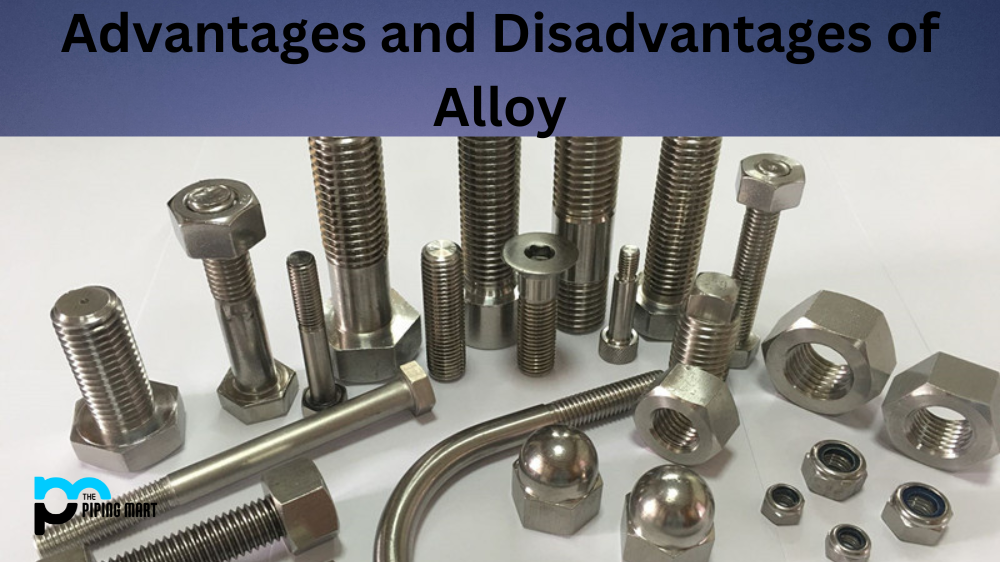An alloy is a metal composed of two or more elements. It’s used in a variety of industries, from automotive to aerospace, due to its strength, durability, and cost-effectiveness. But like any material, alloy comes with its own set of advantages and disadvantages. Let’s break down what makes alloy so special—and why it might not be the best option for certain applications.
5 Advantages of Alloys
The most significant advantage of using alloy is its strength. When compared to other metals, such as steel or iron, an alloy is much stronger and resistant to wear and tear. It’s also able to withstand extreme temperatures without losing its structural integrity, making it perfect for use in automotive parts or aerospace components that are subjected to high heat or cold temperatures. Another major advantage is its price; alloy is generally more cost-effective than many other metals on the market today.
Stronger than Pure Metals
One of the primary advantages of alloys is that they are stronger than pure metals. This is because alloys contain a mixture of different metals, which creates a stronger overall metal. For example, steel is an alloy that is made by combining iron and carbon. This combination creates a much stronger metal than iron or carbon alone.
Resistant to Corrosion
Another advantage of alloys is that they are more resistant to corrosion than pure metals. This is because the different metals in an alloy can create a protective barrier against corrosion. For example, stainless steel is an alloy that contains chromium, which helps to resist corrosion.
Customized for Specific Applications
Alloys can also be customized for specific applications. This means that alloys can be created that have specific properties that make them well-suited for a particular application. For example, an alloy might be created that has a low melting point so that it can be used in applications where it needs to be melted and cast into a new shape.
Less Expensive than Pure Metals
Another advantage of alloys is that they are often less expensive than pure metals. This is because it is usually cheaper to produce an alloy than it is to produce a pure metal. Additionally, alloys often have properties that make them more valuable than pure metals, which further reduces the cost advantage.
Wide Range of Properties
Finally, alloys offer a wide range of properties that make them useful in a variety of applications. For example, some alloys are magnetic, while others are not. Some alloys are also heat resistant, which makes them useful in applications where they will be exposed to high temperatures
5 Disadvantages of Alloys
One major disadvantage of using alloy is that it can be difficult to work with due to its flexibility and malleability. This means that it can bend and deform easily when exposed to pressure or force, which can make it unsuitable for some uses. Additionally, some alloys have low melting points, which can cause them to melt during fabrication processes such as welding or cutting, thus reducing their structural integrity even further. Finally, depending on the specific type of alloy used in an application, there may be environmental concerns related to their production process (such as releasing hazardous chemicals).
- Alloys are not as strong as pure metals.
- Alloys are less ductile than pure metals.
- Alloys are more difficult to weld than pure metals.
- Alloys are more difficult to machine than pure metals.
- Alloys are more expensive than pure metals.
Conclusion
The alloy has numerous advantages over other metals; however, it’s important to remember that there are also potential drawbacks associated with this material as well. When looking into using alloy for an application, research should be done beforehand in order to determine if this metal is truly the best choice for your needs – both from a practical and environmental perspective. Ultimately though, if you need a strong and durable metal at an affordable price point, then alloy may be just what you’re looking for!

Pipingmart is a B2B portal that specializes in metal, industrial and piping items. Additionally, we share the latest information and information about materials, products and various types of grades to assist businesses that are involved in this business.




